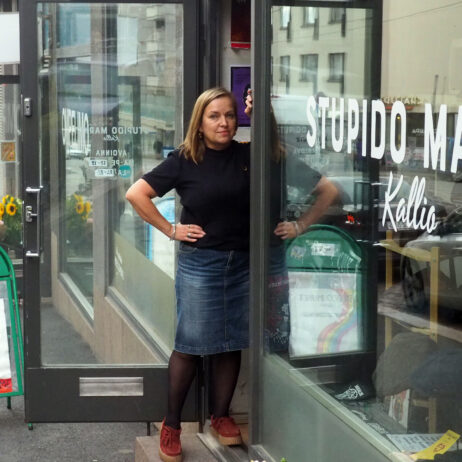Ranka Kustannus: Radio remuneration an enabler of action

Ranka Kustannus is an independent label and publisher with roots going back to 1998. It started out as a publishing arm for artists signed to the legendary metal and rock label Spinefarm Records and later even experimented with book publishing. When Universal acquired Spinefarm, Ranka became dormant—essentially a drawer-label—until it relaunched in 2013 as a full-fledged record label.
“Ranka puts out around 50 to 80 tracks a year, mostly rock and metal,” says Riku Pääkkönen, the company’s CEO.
Gramex remunerations have played a clear role in the company’s operations.
“They’re a significant part of any record label’s business. They provide a stable foundation that helps balance out the ups and downs,” Pääkkönen explains.
At Ranka, remunerations from Gramex account for roughly 5–10% of the company’s annual revenue. Payment days are closely watched by both the company and its artists.
“Everyone knows when those payments are coming, and we look forward to them just like our artists do.”
Pääkkönen stresses the importance of keeping radio remunerations at least at current levels. “They’re essential, they’re what makes this work possible.”
With decades in the industry, Pääkkönen has known about Gramex since early on. “I released my first record in 1990. Before that, I got to observe how a small label called Sonic Records operated. That’s where I first heard of Gramex. There was no internet, no information overload like today, but even then, Gramex was well known—especially among smaller players in the field.”
Copyrights at the Core
Now that information is so accessible, Pääkkönen encourages artists to learn the basics of copyright.
“An artist should care about copyright remunerations just as much as they care about their music. Without the first, there often won’t be the second. It doesn’t take long to understand the essentials, and you don’t need constant studying to stay on top of it.”
Looking at the indie scene, Pääkkönen sees both promise and challenges.
“Indie has always been a source of innovation and diversity. But there’s a knowledge gap that needs to be filled if the sector is going to keep growing. Competition is fierce now, and mistakes are expensive. A lot of newcomers learn things the hard way. At the same time, major labels in small markets like this tend to focus on the sharp end of the pop spectrum. That leaves a lot of room for smaller players to carve out their space.”
Pääkkönen wraps it up by underlining how central copyright is to Ranka Kustannus:
“Copyright is the backbone of our business. Without it, we couldn’t invest in future stars or high-quality content.”




